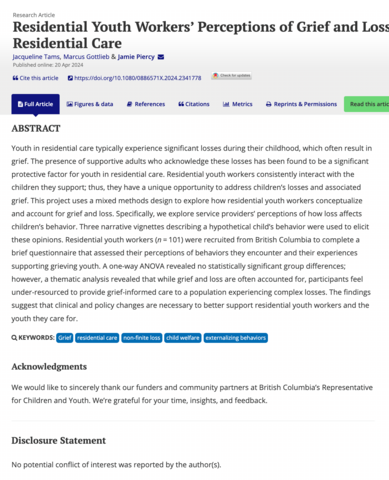Youth in residential care typically experience significant losses during their childhood, which often result in grief. The presence of supportive adults who acknowledge these losses has been found to be a significant protective factor for youth in residential care.
Residential youth workers consistently interact with the children they support; thus, they have a unique opportunity to address children’s losses and associated grief. This project uses a mixed methods design to explore how residential youth workers conceptualize and account for grief and loss. Specifically, the authors explore service providers’ perceptions of how loss affects children’s behavior.
Three narrative vignettes describing a hypothetical child’s behavior were used to elicit these opinions. Residential youth workers (n = 101) were recruited from British Columbia to complete a brief questionnaire that assessed their perceptions of behaviors they encounter and their experiences supporting grieving youth. A one-way ANOVA revealed no statistically significant group differences; however, a thematic analysis revealed that while grief and loss are often accounted for, participants feel under-resourced to provide grief-informed care to a population experiencing complex losses.
The findings suggest that clinical and policy changes are necessary to better support residential youth workers and the youth they care for.

